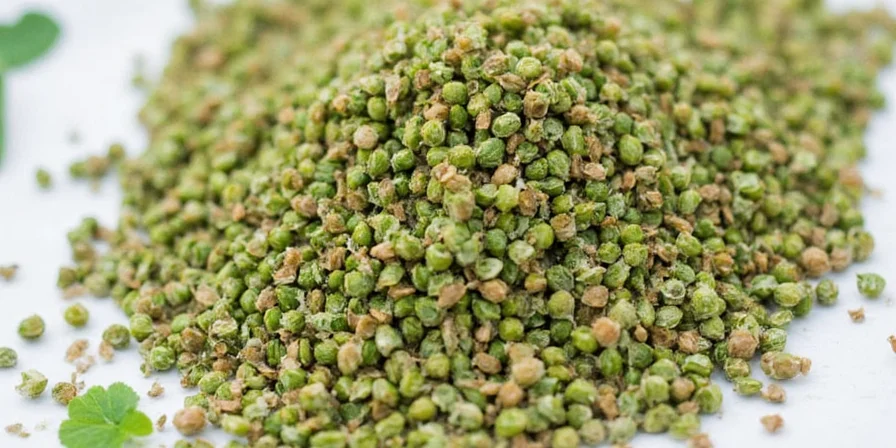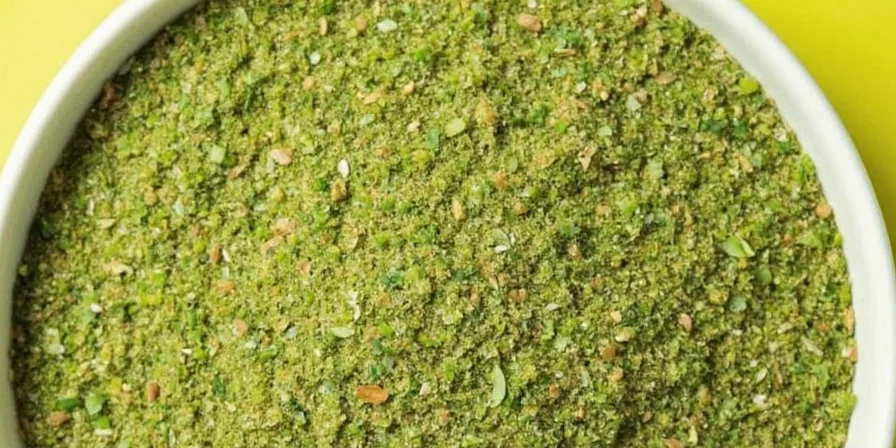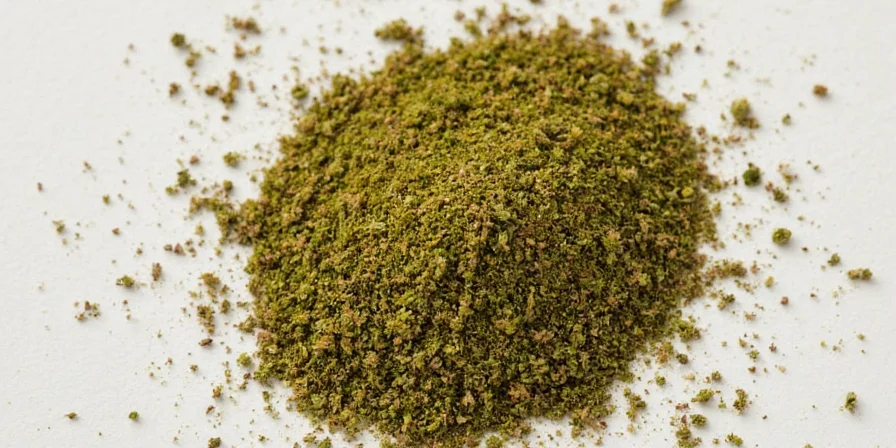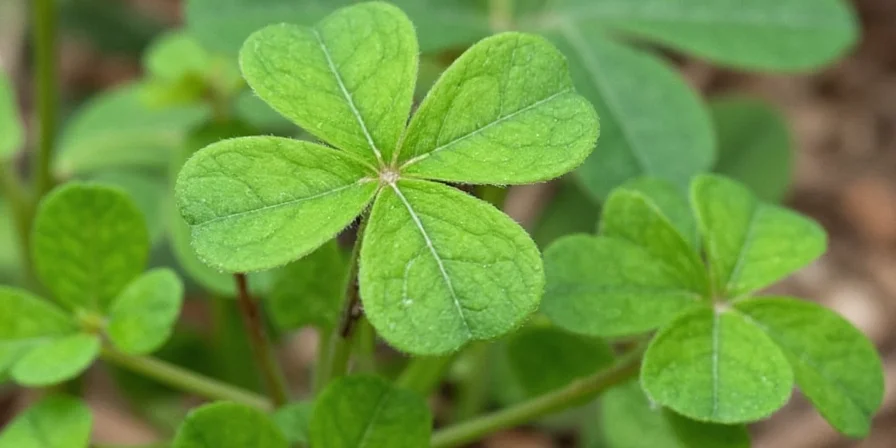Clover spice refers to the dried leaves and flowers of Trifolium plants, primarily red clover (Trifolium pratense) and white clover (Trifolium repens), used as a culinary ingredient. Unlike bold spices, clover spice offers subtle floral notes that enhance dishes without overpowering them. This comprehensive guide explains exactly what clover spice is, how to use it properly, where to source it, and answers the most frequently asked questions about this underutilized ingredient.
Table of Contents
- What Exactly Is Clover Spice? (Definition, Types, Uses)
- Types of Clover for Culinary Use: Red vs White vs Alsike
- Why Use Clover Spice? 4 Key Culinary Benefits
- Global Culinary Applications: From Scandinavia to Japan
- Cooking with Clover: 7 Expert Techniques That Work
- Clover Flavor Profile: Complete Taste Characteristics Breakdown
- Traditional Uses vs Modern Culinary Applications
- Where to Buy Clover Spice: Trusted Sources Revealed
- Common Clover Spice Mistakes (And How to Avoid Them)
- Frequently Asked Questions Answered
What Exactly Is Clover Spice?
Clover spice consists of dried leaves and flowers from plants in the Trifolium genus, with red clover (Trifolium pratense) and white clover (Trifolium repens) being the most commonly used culinary varieties. Unlike traditional spices that dominate flavor profiles, clover spice functions as a supporting ingredient that enhances rather than overwhelms.
When properly harvested and prepared, clover spice adds subtle floral notes, mild sweetness, and earthy undertones to dishes. Its culinary value comes from its ability to harmonize flavors in delicate preparations where stronger spices would disrupt balance. Professional chefs increasingly use it in premium dishes for its nuanced contribution to complex flavor profiles.
Types of Clover Worth Knowing
Understanding the differences between clover varieties prevents flavor mismatches in your cooking:
| Type | Flavor Characteristics | Best Culinary Applications |
|---|---|---|
| Red Clover | Sweet, floral, honey-like with minimal bitterness | Teas, dessert infusions, light sauces, pastry applications |
| White Clover | Mildly earthy, grassy, slightly bitter (use sparingly) | Herb blends, savory dishes, vegetable preparations |
| Alsike Clover | Delicate, fresh, slightly nutty (most versatile) | Baking, light soups, salad dressings, compound butters |

Why Bother Using Clover at All?
Despite its subtle nature, clover spice offers distinct culinary advantages that justify its inclusion in your spice collection:
- Flavor Harmony: Its gentle profile complements without overpowering, ideal for balancing complex dishes where traditional spices might dominate.
- Sustainability Advantage: Requires no cultivation—thrives as a soil-enriching plant in most temperate climates, making it an eco-friendly choice.
- Terroir Expression: Captures hyper-local flavor nuances based on regional soil composition, offering authentic taste of place.
- Culinary Versatility: Transforms from tea additive to pastry ingredient with minimal processing, working in both sweet and savory applications.
The Global Forager's Perspective
Clover's culinary applications reveal fascinating cultural interpretations across the world:
- Scandinavian Cuisine: Chefs treat red clover blossoms as precious spring ingredients—infusing them into reindeer tartare sauces and seafood preparations.
- Japanese Kappo Restaurants: White clover appears in delicate tempura batters and as a subtle flavor enhancer in traditional broths.
- Peruvian Traditional Use: Foragers incorporate it into medicinal honey blends, viewing it through ancestral plant knowledge.
- Mediterranean Applications: Dried clover flowers enhance herbal teas and light dessert preparations throughout southern Europe.
This global perspective demonstrates clover's unique position: a universally available plant interpreted through intensely local culinary traditions. Unlike traded spices, clover's flavor varies dramatically based on microclimate, making it a true expression of place for chefs seeking hyper-local ingredients.
Cooking with Clover: 7 Practical Tips
Professional techniques that maximize clover's culinary potential:
- Optimal Harvest Timing: Collect blossoms in late morning after dew evaporates but before noon heat for maximum flavor concentration.
- Cold-Infusion Method: Steep dried clover in cold filtered water for 12 hours to extract delicate floral notes without bitterness.
- Compound Butter Technique: Blend clover powder into softened butter with lemon zest, then roll into parchment for instant flavor enhancement.
- Smoke Enhancement: Add dried clover to smoking chips for poultry or fish to impart subtle floral notes.
- Global Fusion Pairing: Combine with yuzu kosho in Scandinavian-inspired seafood sauces for unexpected brightness.
- Texture Application: Pulse dried blossoms into fine powder for dusting desserts like matcha or cocoa.
- Cocktail Innovation: Freeze clover blossoms in ice cubes for summer drinks that slowly release flavor as they melt.
Clover Flavor Profile: Complete Breakdown
Understanding these nuanced characteristics helps maximize clover's culinary potential:
| Characteristic | Description |
|---|---|
| Primary Taste | Mildly sweet with subtle hay and grass notes |
| Aromatic Profile | Fresh, slightly perfumed, reminiscent of a spring meadow |
| Mouthfeel | Light-bodied, almost airy, especially in teas and infusions |
| Aftertaste | Clean and refreshing when used appropriately; slight bitterness if overused |
| Heat Sensitivity | Loses delicate floral notes above 160°F (71°C) |

Traditional Uses and Modern Applications
While clover appears in historical wellness traditions, modern culinary applications focus on flavor rather than medicinal properties:
- Nutritional Context: Contains compounds common in leafy greens, contributing to dietary diversity when used as a spice.
- Culinary Heritage: Historically used in calming herbal infusions across European traditions, now repurposed for flavor enhancement.
- Seasonal Cooking: Some cultures incorporate it during spring recipes as part of seasonal eating patterns.
- Sustainable Agriculture: As a nitrogen-fixing plant, it supports soil health in organic farming practices.
Important culinary note: Clover should be used as a flavoring agent, not for medicinal purposes. Consult healthcare providers about potential interactions if consuming large quantities, especially with blood thinners or hormone therapies.
Where Can You Find Real Clover Spice?
Quality sourcing makes all the difference in culinary results:
- Specialty Herb Suppliers: Look for vendors specifying Trifolium pratense or Trifolium repens with recent harvest dates (within 6 months).
- Verified Forager Networks: Connect with local foraging communities through platforms like Falling Fruit for hyper-local sources.
- Reputable Seed-to-Table Brands: Choose companies that document growing conditions, soil testing, and processing methods.
- DIY Harvesting: Collect from pesticide-free areas after rain when blossoms are fully open (minimum 100 feet from roadsides).
Common Clover Spice Mistakes to Avoid
Professional insights to prevent culinary disappointment:
- Misidentifying Species: Clover resembles toxic look-alikes like lesser celandine. Always verify trifoliate leaves and characteristic flower heads.
- Over-Processing: Excessive heat destroys delicate volatile compounds—add near the end of cooking (below 160°F/71°C).
- Ignoring Seasonality: Spring-harvested blossoms offer superior flavor to summer collections; peak season is April-May in most temperate zones.
- Improper Storage: Store in vacuum-sealed containers away from light; degrades within 6 months even when properly stored.
- Overuse: Start with 1/8 teaspoon per serving—clover's subtle nature means less is more in most applications.
Frequently Asked Questions About Clover Spice
What exactly is clover spice made from?
Clover spice comes from dried leaves and flowers of Trifolium plants, primarily red clover (Trifolium pratense) and white clover (Trifolium repens), harvested at peak bloom and carefully dried.
Is clover spice safe to eat?
Yes when properly identified and sourced from clean environments. Avoid plants near roadsides or treated lawns. Always consult healthcare providers if taking blood thinners.
How does clover spice compare to other floral spices?
Clover offers milder floral notes than lavender or rose, with subtle sweetness and earthiness. It works where stronger floral spices would overwhelm delicate dishes.
Can I grow my own clover spice at home?
Absolutely. Red clover thrives in temperate zones with minimal care once established. Harvest flowers in spring for best flavor.
What dishes showcase clover best?
Light preparations like goat cheese tarts, spring vegetable risotto, floral cocktails, and delicate dessert sauces highlight its subtle flavor profile.
How do I store clover spice properly?
Vacuum-seal dried blossoms in opaque containers. Refrigeration extends freshness to 8 months, while freezing preserves quality for up to 12 months.
Conclusion
Clover spice represents culinary mindfulness in its purest form—a reminder that extraordinary flavors often grow right beneath our feet. By understanding its nuanced profile and global interpretations, home cooks and professional chefs alike can transform this overlooked plant into a sophisticated flavor catalyst. The next time you spot clover in a field, recognize it not as a weed but as a free, sustainable ingredient waiting to elevate your cooking with nature's subtle artistry. When harvested and used properly, clover spice offers a distinctive flavor experience that enhances rather than dominates, making it a valuable addition to any serious cook's spice collection.












 浙公网安备
33010002000092号
浙公网安备
33010002000092号 浙B2-20120091-4
浙B2-20120091-4